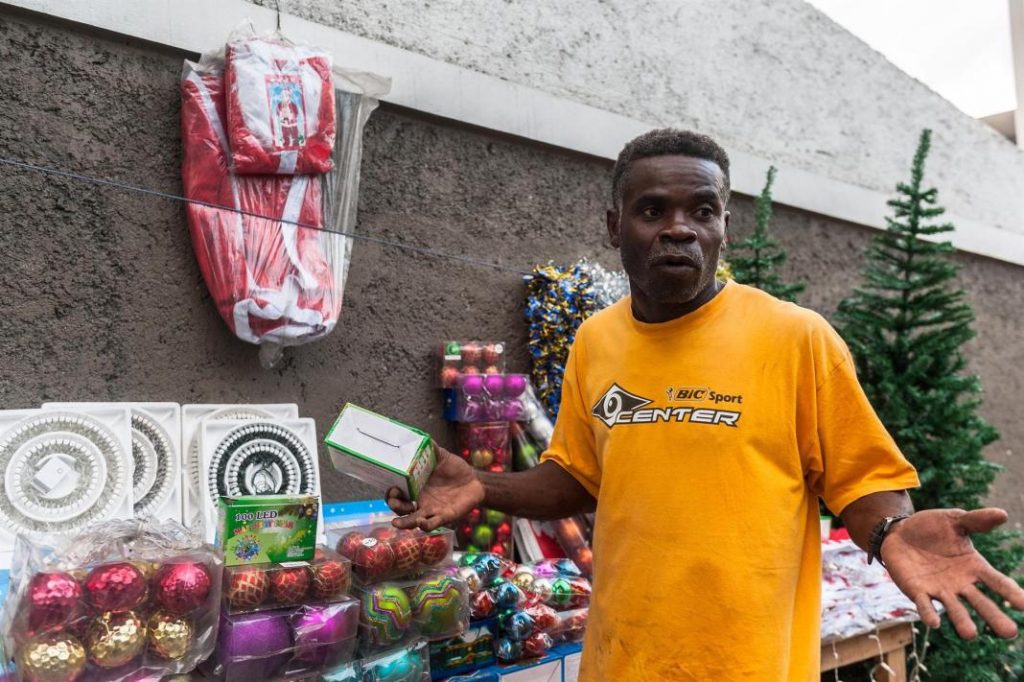Christmas decorations or traditional Christmas carols are in short supply this year in Haiti, a sign of the acute socio-political and economic crisis hitting this country.
Gone are the shopping, the cleaning of the neighborhoods, the gifts for the children, or the renovation of the houses, which are part of the traditions of the Haitians, who by custom welcome Christmas at the beginning of December, placing in the pine trees or branches entrance to their homes.
The streets and markets are still crowded with people, who, regardless of these dates, try to survive in the midst of an increasingly uncertain panorama.
THIS YEAR THERE IS NOTHING
“The sale is not as hot as in the past. This year there is nothing,” complains Jean Pierre, an electronics salesman on the corner of Avenue Christophe and Jean-Paul II, less than a kilometer from the National Palace.
For Haitians, the festive periods and especially the end of the year is a sign of good sales, especially in the informal sector that keeps the country’s economy alive, in free fall for years.
“This year I see that it is different. Not even carols are heard. This year there is no preparation,” continues Jean Pierre in statements to EFE.
Beside him, Marie Pierre, who thanks God “for being alive”, complains that there are no festive activities, no money.
NO DINNER OR PARTIES
The scarcity of some foods or their high cost also makes it difficult for an average Haitian to make the traditional Christmas dinner, which is basically made up of rice with beans, pork, chicken, or macaroni.
Added to this are the growing and generalized insecurity, which practically prevents nightlife in this country, which for a long time has suffered the scourge of armed gangs.
A DIFFICULT 2021
For analysts or ordinary citizens, this is the worst year the nation has had, due to a series of events, ranging from the assassination of President Jovenel Moise on July 7 to the August 14 earthquake that devastated much of southern Haiti causing the death of 2,248 people.
This year, “the situation has been very difficult. I do not mean catastrophic. It is an extremely difficult situation for households and companies,” Haitian economist Economy Germain told EFE.
Everything that is happening, he said, “is a visible consequence” of the social and political crisis, aggravated by the assassination, at the hands of an armed commando, of President Moise, who for a long time had faced multiple protests, some of which came to paralyze the country, further deteriorating the weak local economy.
“When there is a political crisis, economic indicators tend to deteriorate. It affects the lives of homes, causes the closure and bankruptcy of homes,” said Germain, who cited that the August earthquake alone represented a loss of 15% of Haiti’s GDP, whose economy contracted by 3.3% in 2020 and could decline by an additional 1.3% at the end of this year.
